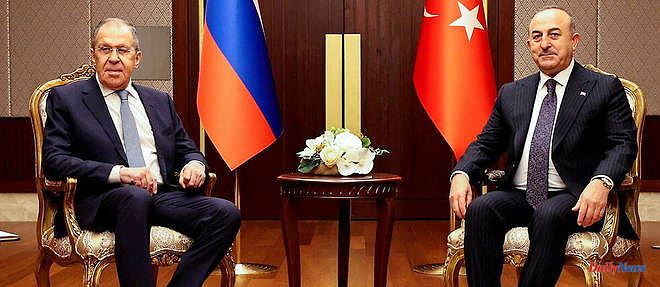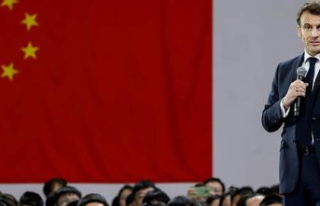Moscow questions everything. Russia threatened Friday to call into question the agreement allowing the export of Ukrainian cereals if nothing is done to remove the obstacles to the exports of Russian fertilizers and food products. "If there is no progress in removing obstacles to Russian fertilizer and grain exports, then we will wonder whether this agreement is necessary," Russian Foreign Minister Sergei Lavrov said during a meeting. a trip to Ankara.
Peace talks on Ukraine are only possible if they aim at establishing a "new world order" without American domination, the Russian foreign minister continued. “These are the principles on which the new world order will be founded,” he added, denouncing American “hegemonism”. Russia explained its invasion of Ukraine in February 2022 by claiming in particular that NATO and the United States were using their Ukrainian ally to attack Russia.
Before invading this neighboring country, Moscow had demanded security guarantees involving in particular a withdrawal of the Atlantic Alliance of Eastern Europe. The Kremlin also considers that the West is waging a proxy war in Ukraine by providing Kiev with military aid, another way of explaining the inability of the Russian army to impose itself on the battlefield.
This month, the Russian presidency has repeatedly said that it sees no opportunity for negotiations and has no "alternative but to continue the special military operation", the Russian euphemism to describe its offensive in Ukraine. The Kremlin thus immediately ruled out possible Chinese mediation and a call for a truce from its ally, Belarusian President Alexander Lukashenko.
In March, Russia announced that it was only extending its participation in the grain deal for 60 days, instead of the 120 stipulated in the pact. The so-called Black Sea Agreement, signed last July for 120 days between the United Nations, Ukraine, Russia and Turkey has resulted in alleviating the global food crisis caused by the Russian invasion.
It was renewed in November for four months and allowed the export of more than 24 million tonnes of grain from Ukrainian ports, according to the UN.
Consult our file: War in Ukraine












